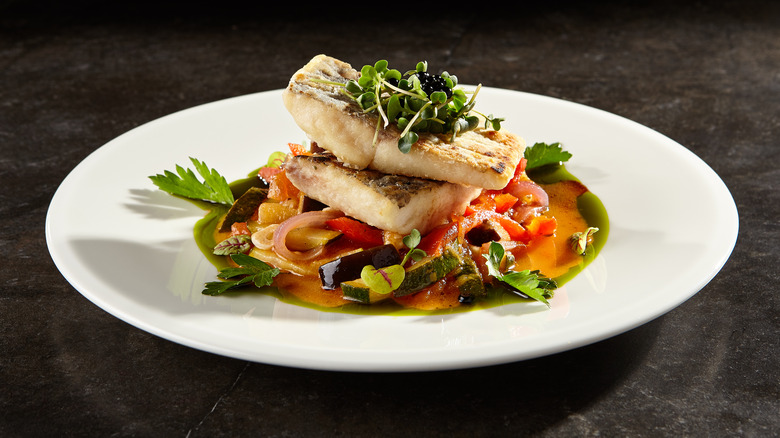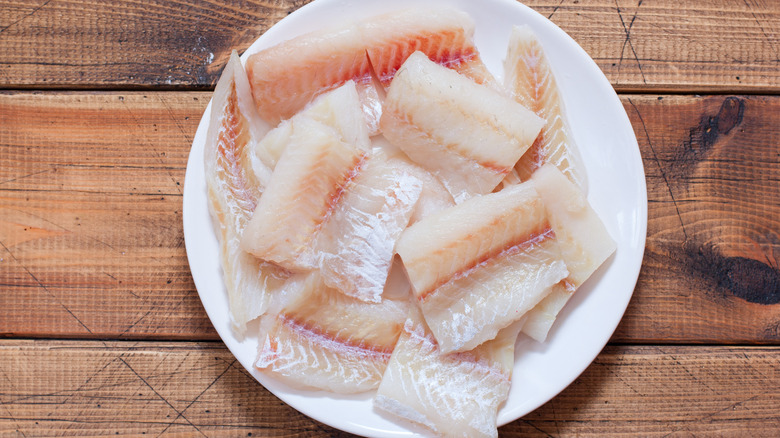Cooking Methods To Avoid For Alaskan Pollock
A mild-tasting, versatile fish, Alaskan pollock appeals to a variety of eaters and can be prepared in many ways, according to Wild Alaskan Company. Another advantage to making pollock is that you can cook it with mild to spicy seasonings, such as chorizo and pepper (via Yummly) , or simply poached with garlic butter, per Lake Geneva Country Meats.
When it comes to preparing pollock, some cooking methods are better suited for the lean fish with its firm texture. Wild Alaskan Company recommends baking pollock or incorporating it into casseroles by itself or with other seafood. The Spruce Eats suggests even making it into fish sticks or fish cakes. And don't rule out frozen pollock — after defrosting the fish, Livestrong states it can be pan-fried, steamed, and grilled.
But what's the point if you go through all that trouble in preparation only to result in a dried-out, crumbly piece of fish? Thankfully, there are several ways you can avoid this mishap to ensure your pollock is moist and tender when you go to break off a piece with your fork.
Broiling and microwaving pollock should be your last resorts
According to The Spruce Eats, broiling should be totally avoided since the fish can quickly dry out and ruin its natural tenderness. Perhaps not surprisingly, microwaving pollock should also be last on your list as a way to prepare your fish, per Livestrong. This typically lends a dry, rubbery consistency because of the high heat and may emit a pungent fish smell due to the "oxidation of its fatty acids" (via Wholey).
Other less-than-ideal options for preparing pollock can work; however, you may miss out on the flavor and buttery melt-in-your-mouth feel. For example, you may think pollock and cod are not much different and could substitute each other, such as for fish and chips; however, The Spruce Eats states cod is much better suited for this classic British meal. This is in part because of its mild flavor that pairs well with the sour kick from the malt vinegar, per Costas Inn. And if you're a fan of fish soup, you'll want to stray from using pollock since it tends to break down in the broth — unless it's already puréed or completely dried for a Korean soup, like bugeoguk.
So the next time you make your ideal pollock-based dish, keep these methods on the back burner so you can enjoy it to its fullest potential.

